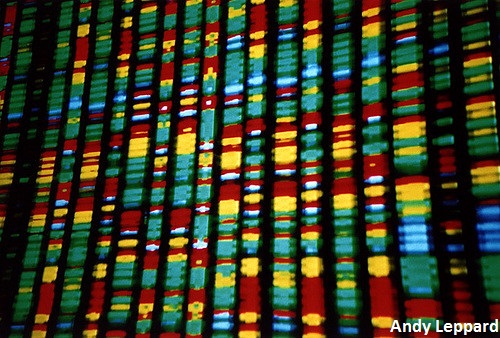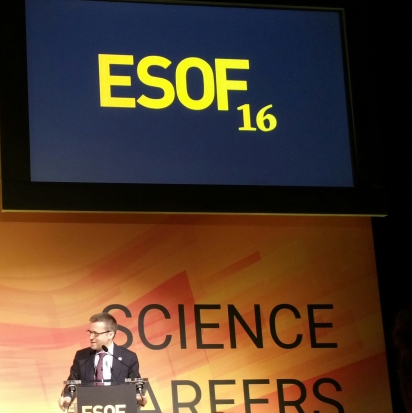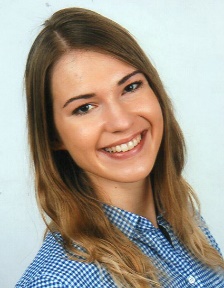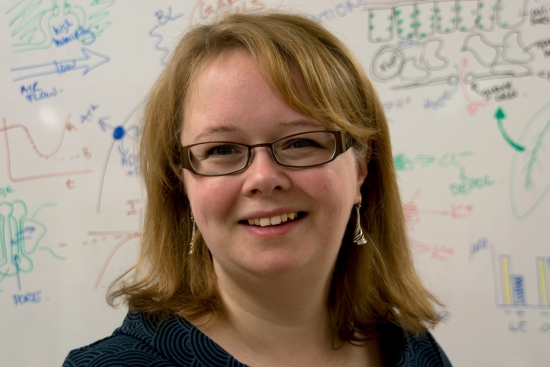Opinion piece by Billy Mills, Biology Week intern at the Royal Society of Biology
 With the utopian goal of saving the world’s species it is inevitable that nature conservation should be an uphill struggle. Having read the news recently you could be forgiven for thinking of it as an altogether worthless affair.
With the utopian goal of saving the world’s species it is inevitable that nature conservation should be an uphill struggle. Having read the news recently you could be forgiven for thinking of it as an altogether worthless affair.
It was reported this September that over the last 25 years we have lost one-tenth of the world’s wild places. A trend that if allowed to continue could lead to almost no places of true wilderness left on Earth. Closer to home we had the release of the State of Nature report, which stated that one in 10 UK wildlife species is at risk of extinction.
When I heard that an evening of post-Brexit discussion was taking place at the Zoological Society of London (ZSL) I anticipated more of the same, an evening hearing about the huge challenges that Brexit poses to UK wildlife conservation. Thankfully I was mistaken. Rather, this event emphasised that the UK scientific community is capable of informing political decisions on the environment and is eager to help. Professor Sue Hartley, President of the British Ecological Society, had a clear message: it is time to mobilise, not to mourn; opportunities to improve on what’s been done so far exist, and this is the time to seize them. Read more


 Project management is very different from staff management. Project management needs an eye for detail while not losing the big picture, keeping close to the plan while being ready to change if necessary. Nothing is more frustrating than a project going awry, but nothing is more rewarding than a project with a successful conclusion.
Project management is very different from staff management. Project management needs an eye for detail while not losing the big picture, keeping close to the plan while being ready to change if necessary. Nothing is more frustrating than a project going awry, but nothing is more rewarding than a project with a successful conclusion. Sequencing our genomes will soon become cheap, easy and widespread, so we need to think about how helpful it will be, what the information will be used for, and how it will be interpreted and communicated. There is great excitement about the possibility of using this information to benefit health and develop personalised medicine. How useful will it actually be?
Sequencing our genomes will soon become cheap, easy and widespread, so we need to think about how helpful it will be, what the information will be used for, and how it will be interpreted and communicated. There is great excitement about the possibility of using this information to benefit health and develop personalised medicine. How useful will it actually be?
 No matter how open-minded we might like to think we are, we’re all victims of our unconscious bias – and this bias exerts a powerful influence on how we assess people and situations. It can lead to poor decisions and missed opportunities and can even shape the entire culture of an organisation. Being able to recognise and challenge our unconscious bias is an essential part of making diversity a reality.
No matter how open-minded we might like to think we are, we’re all victims of our unconscious bias – and this bias exerts a powerful influence on how we assess people and situations. It can lead to poor decisions and missed opportunities and can even shape the entire culture of an organisation. Being able to recognise and challenge our unconscious bias is an essential part of making diversity a reality.  Currently, the scientific community in the UK and Europe is faced with a challenge
Currently, the scientific community in the UK and Europe is faced with a challenge  The human population is expected to reach nine billion by 2050. There are pressing questions about how to ensure a healthy diet for everyone while preventing overuse of natural resources or poisoning of the land, sea and air.
The human population is expected to reach nine billion by 2050. There are pressing questions about how to ensure a healthy diet for everyone while preventing overuse of natural resources or poisoning of the land, sea and air. 
 By Anna Holderbaum, Marie Curie early stage researcher at the
By Anna Holderbaum, Marie Curie early stage researcher at the  Most people who teach would say that they value the views of their students, but how many of us would feel comfortable putting our students in the driving seat and getting them to produce our teaching resources, or even redesign course pedagogy? This is the approach I took in my practical class teaching while I was a Teaching Fellow in the Department of Plant Sciences at the University of Cambridge.
Most people who teach would say that they value the views of their students, but how many of us would feel comfortable putting our students in the driving seat and getting them to produce our teaching resources, or even redesign course pedagogy? This is the approach I took in my practical class teaching while I was a Teaching Fellow in the Department of Plant Sciences at the University of Cambridge.